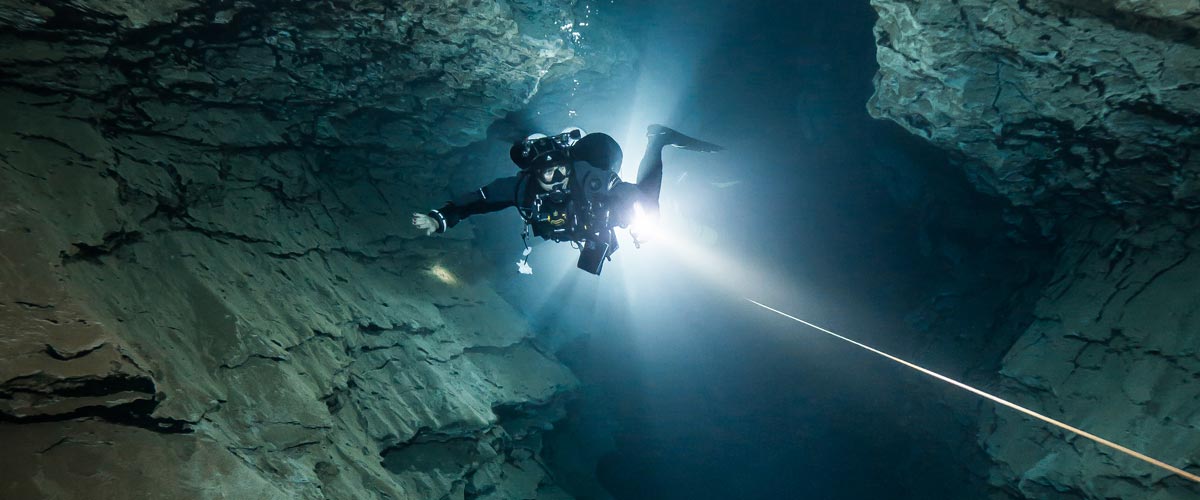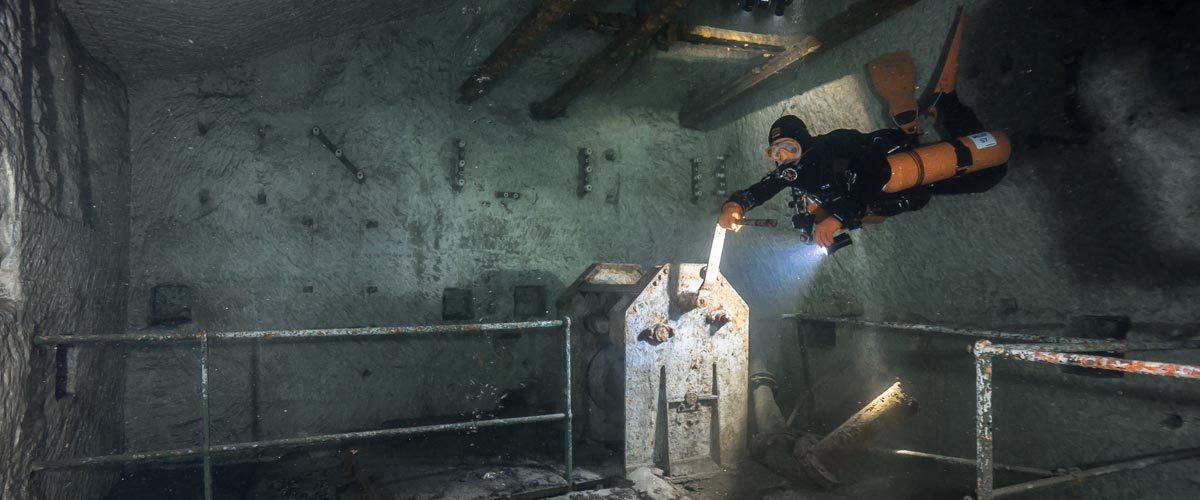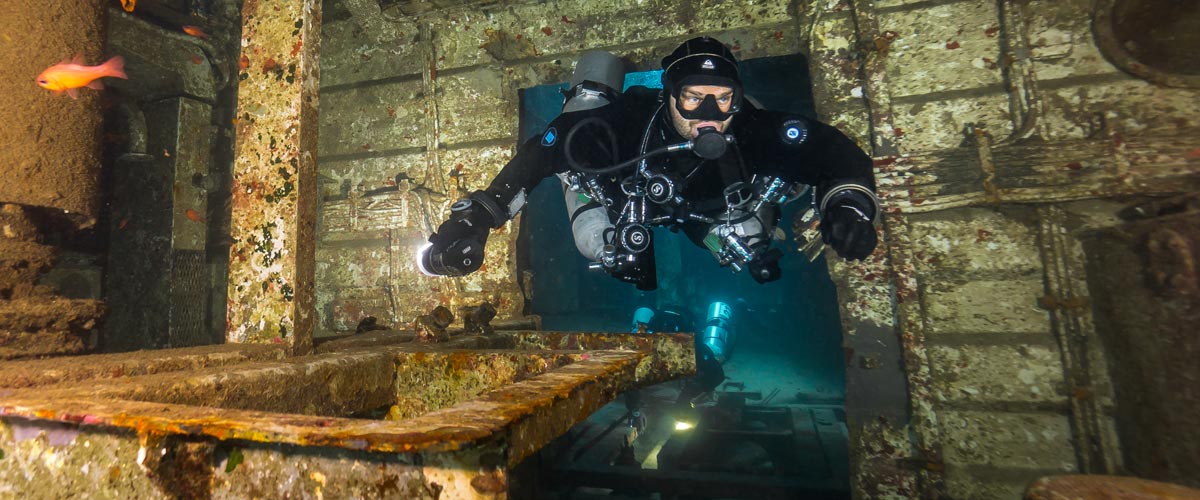Dive Training Blogs
Why Rescue Diver is PADI’s best course
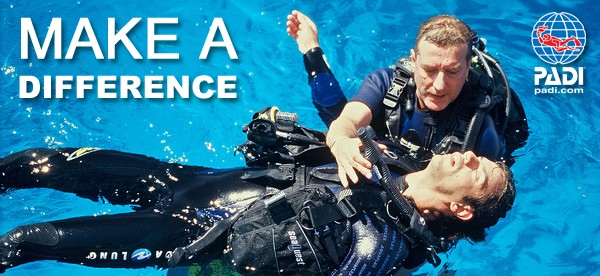
I have been teaching PADI courses for over 10 years now and as good practice I tend to ask people what course they have enjoyed the most as well as what can be improved on our courses.
It’s almost becoming a bit of a cliché now as most instructors will tell you that time and again divers from all over the world say that their favourite PADI course is Rescue Diver. They also say that it is the hardest, most strenuous yet most rewarding.
Why? It’s pretty simple, it’s physically demanding, it can be intensive and because you are learning the skills to save another life it’s pretty intense. Most instructors will put you through your paces so that when you are certified you are ready to use your skills. By the end of the course you are generally close to exhaustion, have had lots of fun with your instructor and fellow students and you’ll rarely sleep so well.
I remember when I had just learnt to dive, I was young(ish) and money was tight. I just wanted to dive and didn’t really have any other cares in the world and I certainly didn’t perceive diving as a dangerous sport as I’d never had any complications. I did my advance next, more because I wanted to go deeper and explore some wrecks. I didn’t really see the point or need of spending even money on additional training. After having the diving holiday of a lifetime I deciding that I wanted to make scuba diving my new career which meant I had to complete the Emergency First Response and Rescue Diver course.
Now that I am “mature” (my mates won’t necessarily agree here) and now a proud Father with thousands of dives under my weight belt, I have seen the light and almost think that the Rescue Diver course should be mandatory for anyone who buddies up with someone under the age of 18, unless a Pro sticks with you. Looking back, if you were a new diver again, would you rather be buddied with a Rescue Diver or just an Open Water Diver who couldn’t even use a dive computer?
Thankfully I have never had an emergency to deal with, but I have had to use the skills I learnt when I did my Rescue course. Mostly it has all been about ‘accident prevention’. I’ve been sat on a boat on holiday with my non-work head on and looking forward to the dive. Out of the corner of my eye I’ve spotted a diver from another group who was clearly looking stressed. He was a bit fidgety, had a nervous laughter, dilated pupils and his mates who were fuelled on adrenalin were talking up about how great this deep (30m) wreck dive was going to be which I could see put extra pressure on him to do the dive so as not to lose face.
I calmly nodded my head to motion him to come over for a quiet chat at the front of the boat. Once we got chatting I said that it could be a daunting dive if a diver was relatively inexperienced or had never done a wreck dive before. Having no previous knowledge of his experience I was trying to work out what was making him anxious. In turned out that he’d only ever done 9 dives and none of these were on a wreck and only one was below 18m. I then told him I was an instructor and would be happy to buddy up with him. I could see him hesitate because he didn’t want his mates to feel like someone was holding his hand. When I said “that you’d be doing me a favour as I don’t really have a buddy” he felt more at ease. I then quietly informed my buddy that he’d have to dive with someone else; it was well worth a beer fine though!
Once we started our descent I could see he was still nervous but was reassured by the fact I stuck to his side, maintained eye-contact and frequently asked him if he was okay. Once the wreck came in to view and we reached deck level I could see he was now totally at ease.
I’m not saying that I saved his life or anything like that but I definitely reduced the odds of an incident. It also made me feel good about myself knowing that a fellow diver had their ‘best ever dive’.
On four occasions I’ve been sat in a bar or a boat after a dive and I’ve seen people with a beer in one hand, cigarette in another complaining about symptoms such as pins and needles in their hands. I’ve then marched them to the nearest chamber to get sorted out. The thing that all of these people had in common was; they were in their 20’s, they were experienced divers (2 were trainee Divemasters and 1 was a new instructor), they had all stayed within the limits of their computers but pushed the NDL’s and depth limits, they all smoked, had a late night, had drank caffeine before or after the dive, hadn’t drank any water and thought that they weren’t the sort of person who couldn’t get bent.
I probably have 7 or 8 other instances relating to accident prevention that I think without my training and knowledge, I’m pretty sure that I would have witnessed a serious accident by now.
So the PADI Rescue Diver course isn’t just about how to save someone’s life, it’s also about how to prevent accidents from happening. Part of the course covers self-rescue, something that most divers could benefit from at some time or another! Did you know that most divers who die from drowning still have their weight belt on?
During the course you’ll be in and out of the water, throwing life rings as far as you can, become really familiar with yours and other divers’ equipment, be much better at problem solving under pressure, bringing unconscious ‘divers’ from the bottom to the surface, learning how to give mouth to mouth while towing an unconscious diver along the surface, how to get them out of the water and how to give them emergency Oxygen.
Once you’ve developed these skills it makes you much more aware of some of the potential dangers in diving which makes you a safer diver. And equally important it makes you a great buddy and makes you a more confident diver!
Oyster Diving would be happy to offer any reader of this article 10% off the EFR and PADI Rescue Diver course. Just email Mark at mark@oysterdiving.com or call him in the office on +44 (0)1273 384971.
Blogs
Intro to Tech: What is it about?
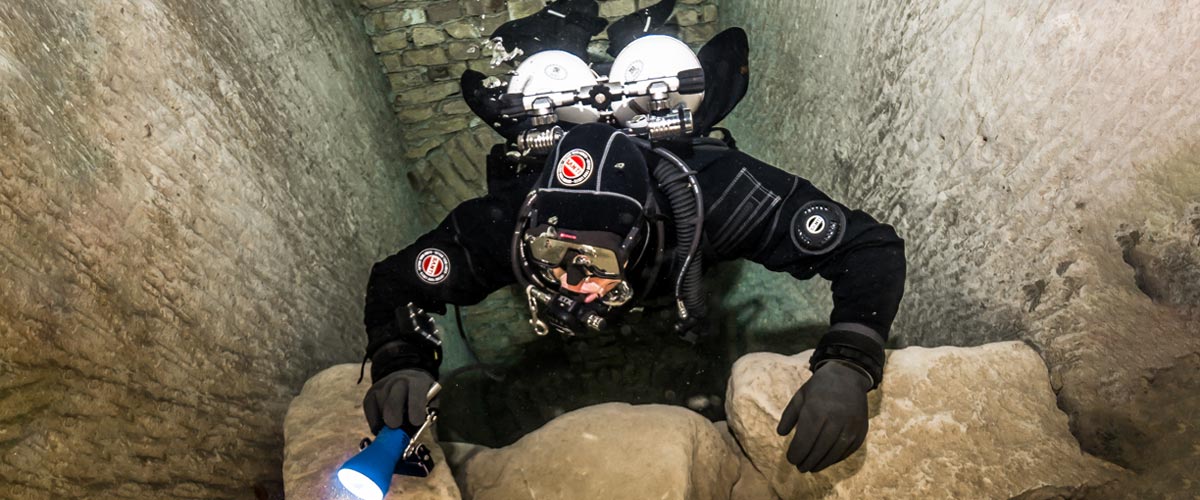
Article by José Pablo Mir
Pictures by Cezary Abramowski
The world of technical diving is exciting. It opens the door to new sites, depths, and bottom times. More importantly, it opens our minds to a new way of planning, facing, and experiencing dives, even those not purely technical.
Becoming a technical diver is a process, and like in other aspects of life, we should find the proper entry point that suits us best based on our knowledge and experience. The Introduction to Technical Diving course from TDI -the world’s largest and most recognized technical diving teaching organization- is the best option for divers who have yet to gain experience in the fundamental aspects of this new practice. The course’s content and its embrace of new techniques and technologies make it possible to acquire a solid foundation to learn and gain experience in this practice properly.
Becoming a technical diver is not something that happens overnight, whether deciding to become one or receiving a certification card stating we are now technical divers. It is a slow process extending farther away than any introductory course. It requires effort and dedication. But it will bring us satisfaction from day one -or two.
It is a matter of mentality
First, we must understand and accept that technical diving, involving greater depths, longer bottom times, exotic gases, virtual or real ceilings, and more, comes with higher levels of risk than the sport diving we have been practicing until now.
Although this discussion usually starts with a warning about risks, as I’ve done in the previous sentence, our practice is not a game of chance.
Technical diving is a rational activity that requires maturity and good judgment, and we will put everything into ensuring that each dive is a successful one -meaning we return from it safe and sound. With this understanding, we will strive to establish a mental attitude more aligned with our practice and its realities.
This new “technical diver” mindset we will develop will lead us to be more cautious in our executions, more analytical in our plans, more rational in our strategies, and more detailed in our procedures.
Experience will keep teaching us to know ourselves better, to keep our anxiety and other emotions under control, and to manage our impulses. Over time, our senses will sharpen, and we will be more attentive to the particulars of the situation we find ourselves in.
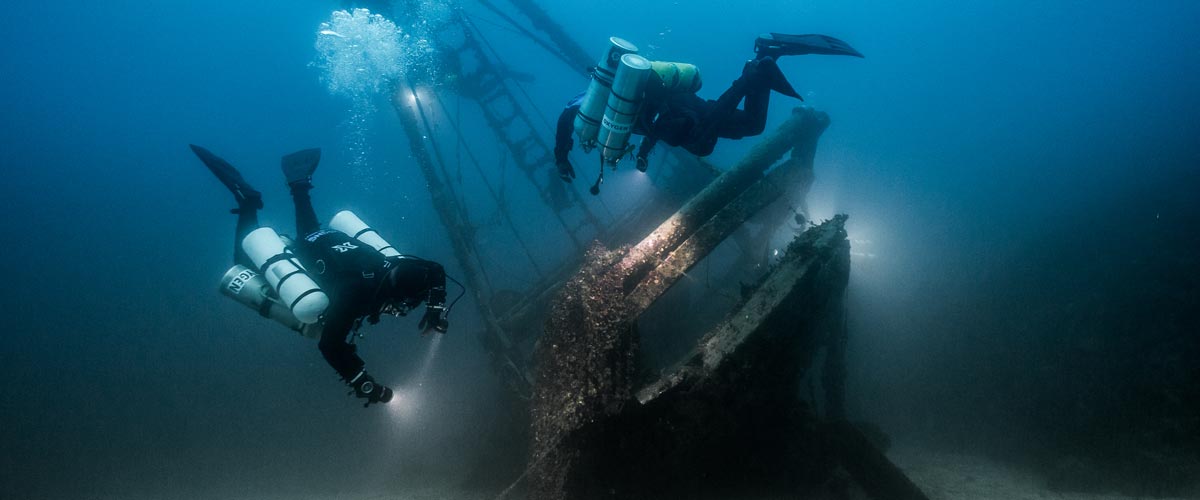
Strategies and procedures
Our strategies, those broad guiding lines tracing the path to follow, from how to approach planning to where, with what, and how we are willing to get there, will be more specific and more practical. Not because they magically become so, but because we will consciously and deliberately frame them that way.
We will establish clear, concise, and realistic procedures. Not only for the undesirable situations that may present themselves but also for those that are part of our dive objectives.
Even though, as technical divers, we often use equipment different from what we were previously accustomed to, it is essential to note that the gear does not make the diver. In a way, we could consider such equipment as the necessary tools to implement what our goal seeks to achieve, according to our strategies and procedures.
Technique plays an important role
We must put our greatest effort into learning and perfecting the different techniques we will be acquiring. Buoyancy, trim, propulsion, cylinder handling, deploying DSMBs and lift bags, valve drills, and more are essential skills we must begin to master to progress in our art. What we cannot do, when we need to do it, can harm us.
Our techniques must be effective and achieve the purpose for which they were devised. But they must also be efficient and require the least resources possible, including the time they take and the effort they demand. Effectiveness and efficiency will prevail over beauty and other considerations that may come to mind, although none of them should be mutually exclusive. A technique executed efficiently and effectively tends to have an inherent beauty.
Refining techniques is a lifelong mission. Some of them will be easy to master from the go; others, on the other hand, will be our life mission and will require many repetitions just to resemble the idea we have in mind of how they should be executed.
We must consider the environment
Our learning, the needs and musts of the practice we engage in, the experience we gradually gain, our strategies and procedures, and even our equipment and tools change with the environment.
Diving in the ocean, everything about us must be suitable for ocean dives. Conditions there rarely emulate those found in a pool, lake, or river. Variable winds and currents, greater depths, visibility conditions, other divers with uncertain skills around us, marine life, maritime traffic, distance from the coast, and many other factors add complexity and uncertainty.
It is never necessary to master the pool on the first day, but planning and aspiring to gradually cope with the ocean’s conditions is essential.
The cost of good training
We are aware that our resources are often scarce in relation to the possibilities of use we could give them if they were not. To a greater or lesser extent, we are part of the economic reality in which we are embedded.
Fortunately, the cost of good technical diver training is not an entry barrier. Comparing training and equipment costs, we see that the former are generally lower. Yes, lower cost for personalized service, essential to our future
performance and safety, than for a series of mass-produced products that are mere, albeit necessary, tools for an end.
The value of good training
The value of the training we received encompasses a range of characteristics, from emotional and methodological to technical and technological. TDI and its Introduction to Technical Diving course offer a deep and modern approach, with a teaching strategy that aims to create thinking divers, not merely obedient ones.
As technical divers, our knowledge is our primary tool. In this type of activity, what we don’t know can harm us.
Is this course optional?
Unfortunately, the fact that this Introduction to Technical Diving course is not a prerequisite for any subsequent training is an invitation to consider it optional. And we all know what usually happens to “optional” under budget constraints.
However, this course should be seen as optional only by those divers who are somehow familiar with the use of technical equipment, who have a mindset more in line with the requirements of this type of diving, who plan and execute the dives the proper “technical” way, who know their gas consumption rate, who are not intimidated by non-decompression tables, who feel comfortable using their dive computers, and know the techniques and have at least an acceptable level of buoyancy, positioning, and propulsion. Those can go straight to a more advanced training course, such as TDI’s Advanced Nitrox.
We must ask ourselves whether or not we are in that group.
Remember our goal: to have fun
Recreational diving is our passion. Jumping into the water carrying heavy equipment and having properly dotted our I’s and crossed our T’s have only one ultimate goal: fun. This is the activity we have chosen as a hobby. We must enjoy it; it must give us pleasure and make us vibrate.
Having a good time is not optional!
Blogs
Four opportunities to go pro in 2024 with Dive Friends Bonaire
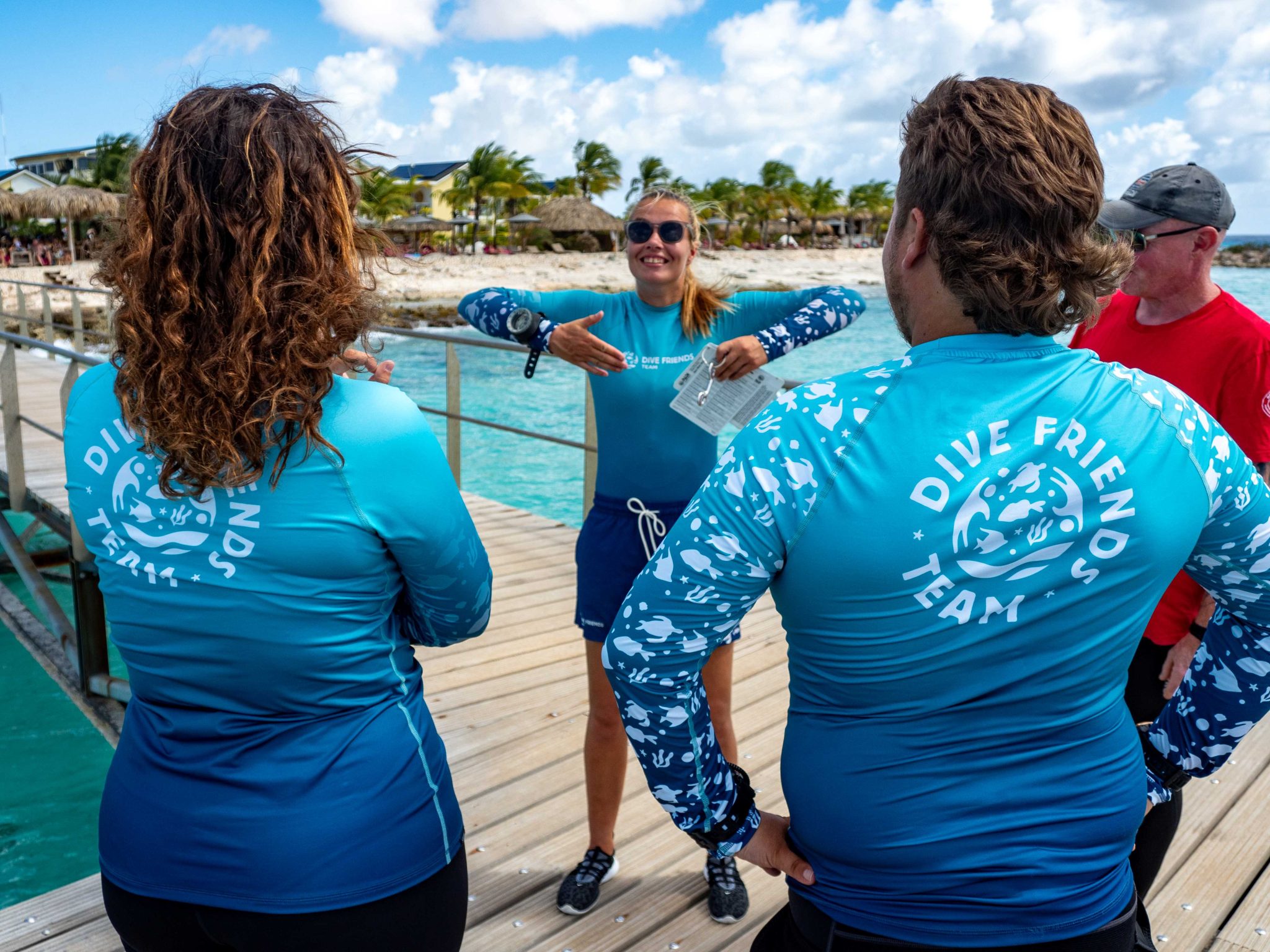
Dive Friends teaches the Instructor Development Course (IDC) several times a year to students who are eager to share their passion for diving with the world.
Dive Friends is known for the personal approach throughout the course. Their in-house course director will lead the students through every essential step, mentoring them to achieve their fullest potential as a dive instructor.
Applications for the following IDC start dates are now open:
- 12 April
- 5 July,
- 20 September
- 29 November
Partnership with Casita Palma
If the student opts for the IDC-Deluxe or IDC-Supreme package, their accommodation will be arranged for them at Casita Palma. This small and quiet resort is within walking distance from Dive Friends Bonaire’s main dive shop location and has everything you need to relax after an intense day of IDC training. Breakfast is included, so the student will always be fuelled and ready for their day.
Contact Dive Friends Bonaire’s Course Director Eddy for more information: coursedirector@divefriendsbonaire.com.
-

 News3 months ago
News3 months agoHone your underwater photography skills with Alphamarine Photography at Red Sea Diving Safari in March
-

 News2 months ago
News2 months agoCapturing Critters in Lembeh Underwater Photography Workshop 2024: Event Roundup
-

 Marine Life & Conservation Blogs2 months ago
Marine Life & Conservation Blogs2 months agoCreature Feature: Swell Sharks
-

 Blogs2 months ago
Blogs2 months agoMurex Resorts: Passport to Paradise!
-

 Blogs2 months ago
Blogs2 months agoDiver Discovering Whale Skeletons Beneath Ice Judged World’s Best Underwater Photograph
-

 Gear Reviews2 months ago
Gear Reviews2 months agoGear Review: Oceanic+ Dive Housing for iPhone
-

 Marine Life & Conservation2 months ago
Marine Life & Conservation2 months agoSave the Manatee Club launches brand new webcams at Silver Springs State Park, Florida
-

 News3 months ago
News3 months agoWorld’s Best Underwater Photographers Unveil Breathtaking Images at World Shootout 2023















